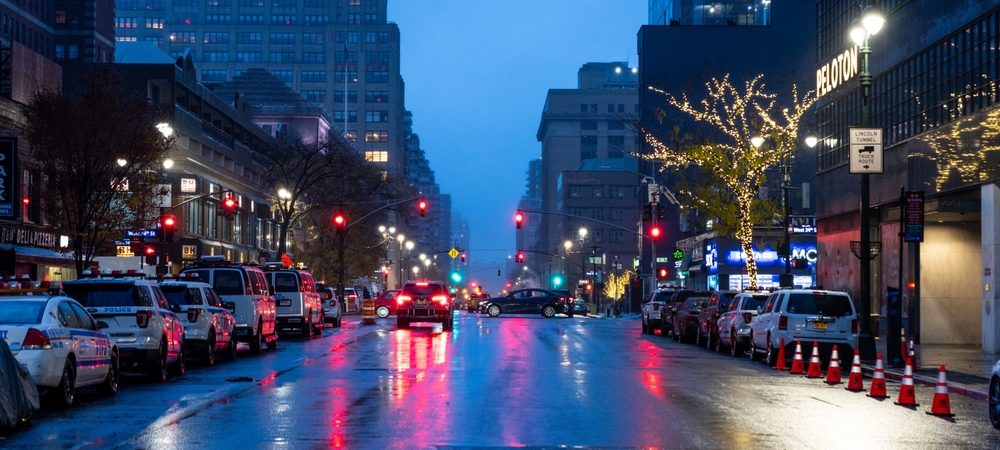Bereavement

Ezra Barsky died at his desk around lunch time. His body sagged in his chair, his head fell on the keyboard, and his left arm dangled like it had no bones. A group of his colleagues walking to a conference room passed him but thought: so what? Ezra could’ve been taking a power nap or having a private moment. They were not judging, they were only thinking that they would never do anything so unprofessional, or if they did, they would be more discreet.
It was Josh from IT who tapped Ezra on the shoulder. In his line of work, he knew that all systems had an infinite potential for glitches, malfunctions, and failures. “Are you alright?” asked Josh. Ezra didn’t reply because he was not alright, because within that hour he had suffered a heart attack, and even if he was alright, now, he couldn’t very well say that to Josh, could he?
A crowd gathered. Ezra was poked, shaken, his head was lifted, someone tried to slap him, but someone else said that could be perceived as harassment. Ezra’s head was released, and he toppled over, fell to the floor, ending up in a fetal position. Someone screamed. “Call an ambulance,” someone yelled. It was unclear why they didn’t call it themselves, but everyone reacts differently to stress. “Does anyone know CPR?” someone else asked.
The paramedics who arrived on the scene knew CPR but it was of no use, and neither was the defibrillator. They kept trying, because in their profession they would’ve been criticized harshly for quitting too easily. Everyone else watched in silence. No one at Titan Global Digital had ever died in the office before, and death appreciates mesmerized and tearful spectators. It gives it credibility. It’s true, two years ago, their head of HR was found on the bathroom floor overdosed on crystal meth, but he was resuscitated and sent to a rehab in Florida. His pants were never found, which elevated the level of excitement somewhat, but it was nowhere close to this. Not only did he bring it onto himself, but also they wished they could go to Florida. These factors combined dulled the impact.
Ezra’s body was loaded onto the stretcher, covered, and wheeled out. His coworkers continued to gather in offices and hallways. Ezra had a reputation of a good guy, a conscientious and reliable employee, even if he never was the center of attention while he was alive, his death fractured the monotony of their workday. Were some secretly thankful? Perhaps, but only a little, and that didn’t mean they lacked empathy. They were in shock. They comforted each other with respectful hugs, called and texted their loved ones, and listened to their own reassuringly alive heartbeats. There were even a few tears. Poor Ezra, they thought, he is dead, really dead. What a way to go. What if this was me? Could it have been me? But it wasn’t me, which is pretty great.
They talked about how fragile life is, and how many of their worries become irrelevant in that context. People talk like that when they don’t encounter death daily but collide with it in their not-so-close orbit, or read the news about wars and natural disasters. Then they forget, because death is only permanent for the dying, for the living it’s still temporary, and in time they return to talking about their weekends, sports, politics, or why their children are growing up such undeniable assholes, despite having everything. In this case, everything being whatever they themselves didn’t have growing up.
People have an uncanny ability to keep living, while other people next to them keep dying.
Layla, who worked in HR on the eleventh floor, was having different thoughts. She remembered last year’s holiday party, the kiss in the stairwell, and Ezra’s tongue in her mouth, first timidly idling at the door, then eagerly rushing in upon a further invitation. None of it seemed important now, so she tried focusing on the bigger picture. What was the bigger picture?
Layla had slept with Ezra only once, after that holiday party and four shots of tequila. Maybe only two shots of tequila, but the rest was true. She planned on having one glass of wine, saying a few hellos, and going home, but somewhere mid-glass she began to miss her ex, who may or may not have been a narcissist, but definitely was a selfish bastard. In her apartment, every mismatched cup was a little failure. The windows of her narrow living room faced a brick wall, because that was all she could afford, which was a metaphor for how her life was going, because she should’ve worked harder, or been more ambitious, or spent less money on cashmere sweaters, even if she only bought them on sale. She loved cashmere sweaters. She would imagine wearing them all at once, and all the layers of velvety softness protecting her better than a hazmat suit. What did she need protection from?
Layla remembered the cab ride back to her apartment. Her head on Ezra’s shoulder. His tequila breath in her hair. Fingers intertwined. All the intimate words and touches, little lies out of loneliness, effective, however ephemeral. The sex they had was not spectacular, but it was acceptable. She didn’t feel worse after it than she did before it, and maybe even a bit better, so that was something. Then they talked about Linda from the legal team, who every day brought her lunch in a toolbox, where in every little compartment, instead of nails, bolts, and screws, she had baby carrots, cherry tomatoes, wasabi peas, pretzels, nuts, dried cranberries, and sometimes even tuna. People do the weirdest shit, they laughed. On his left shoulder, Ezra had a birthmark that looked like a suspension bridge. Layla crossed the bridge by tracing her fingers across it.
To read the rest of this story, please purchase a copy of Issue #20 or subscribe to the print edition.
